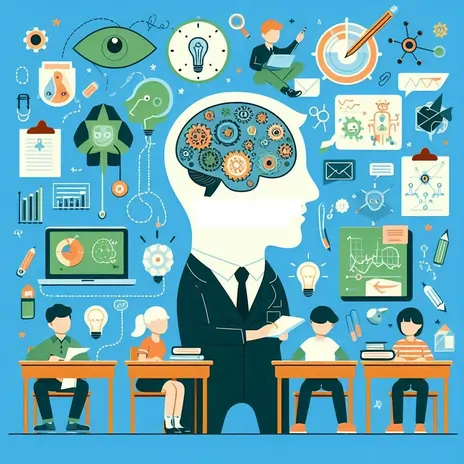The Reason Why Psycology Exams Are Necessary

With Easter having come and gone, there’s a familiar word that reappears in every university student’s vocabulary—exams. Whether you’re studying Engineering or English Literature, they arrive without fail, bringing anxiety, caffeine-fueled study sessions, and countless hours of revision. But when it comes to Psychology, a subject deeply rooted in understanding the human mind and behavior, students often question the necessity and format of traditional exams. Shouldn’t our grasp of human complexity be evaluated through essays, research projects, or hands-on assessments? After all, Psychology values empathy, introspection, and real-world application. So where do exams fit in? This is where many students seek psychology exam help, looking for ways to better understand difficult concepts or manage the heavy cognitive load during exam season. Some even consider hiring an online exam taker to cope with pressure—an option that reveals just how overwhelmed students can feel when trying to balance knowledge acquisition with performance anxiety. The truth is, the need for exams isn’t black and white. In this blog, we’ll unpack why psychology exams—despite their daunting reputation—remain an essential part of your academic and professional journey.

The Academic Purpose of Exams in Psychology
Exams aren’t just hurdles in the academic journey—they are carefully designed checkpoints to ensure that students are developing a thorough understanding of the discipline. In Psychology, this is especially important due to the vastness of the subject and its implications for people’s lives.
Cognitive Development Through Exam Preparation
One of the first psychology subfields students encounter is Cognitive Psychology—the study of mental processes such as perception, memory, attention, and reasoning. These aren’t just abstract concepts; they’re foundational skills necessary for success in both academia and clinical practice.
When preparing for exams, students inadvertently engage in cognitive tasks that reinforce learning. Memory recall, critical analysis, and synthesis of multiple concepts mirror what cognitive psychologists describe as "deep processing"—the kind of mental effort that results in long-term retention.
Moreover, studying topics like memory models (e.g., Baddeley & Hitch’s working memory model) prepares students to understand how their own minds learn, enabling more effective study strategies. Ironically, studying cognitive psychology improves cognition—especially under exam pressure.
Learning and Behavior: Reinforcement in Action
Exams also directly demonstrate theories within Learning and Behavior. B.F. Skinner’s operant conditioning theory is alive and well in the academic world. Students revise hard because they are reinforced—positively or negatively—by outcomes like good grades or fear of failure.
Exams serve as reinforcement mechanisms: deadlines trigger revision; grades encourage persistence. Rather than being out of place, exams are embedded within the behavioral frameworks psychology students are studying. They embody what they teach.
Developmental Psychology: Learning Across Stages
In Developmental Psychology, theorists like Piaget and Vygotsky emphasized the stages of cognitive and emotional development. Preparing for and taking exams provides a benchmark for evaluating student progress through their academic development stages.
Vygotsky’s concept of the Zone of Proximal Development (ZPD) is especially relevant. Exams often push students just beyond their comfort zones, forcing them to build on previous knowledge with the support of teaching, revision guides, and peer study. Exams are therefore a tool for scaffolding intellectual growth.
Real-World Relevance of Psychology Exams
Critics of exams often argue that they don’t reflect real-world scenarios. But in psychology, exams are uniquely capable of mimicking the kind of reasoning and decision-making professionals engage in regularly.
Clinical Application and Biopsychology
In Clinical Psychology, practitioners must quickly assess symptoms, link them to diagnoses, and decide on appropriate interventions. This process involves rapid recall of information, analytical reasoning, and empathy—all skills honed under exam conditions.
Exams that involve case scenarios simulate clinical environments. When a student applies their knowledge of Biopsychology—like the role of the amygdala in anxiety disorders—they’re preparing for real diagnostic decisions. Moreover, understanding the neurochemical basis of behavior, as covered in Psychopharmacology, allows future clinicians to anticipate drug effects and patient responses.
In this way, exams reinforce not only knowledge but also professional thinking patterns.
Research Methods and Ethical Reasoning
Psychology is a science, and like any science, it rests on empirical evidence. Students must learn how to ask research questions, design experiments, and interpret data. Research Methods in Psychology form the backbone of every subfield.
Exams test this understanding through statistical questions, methodological critiques, and hypothesis design tasks. Students gain clarity not only on how to do research but also on how to evaluate the research of others—a crucial skill for practitioners, policymakers, and academics.
And let’s not forget the ethical implications. Ethics in Psychology isn’t just a list of rules. When exams pose morally ambiguous scenarios—like whether to breach confidentiality in a forensic case—they force students to think like professionals, balancing ethical guidelines with human outcomes.
Psychology Exams Prepare You for Diverse Careers
Unlike many academic disciplines, psychology has a broad career applicability—from therapy to criminal profiling to organizational consulting. Exams serve as the first stage in preparing students for these diverse paths.
Industrial-Organizational Psychology and Decision Making
In Industrial-Organizational Psychology, professionals assess workplace behavior, leadership styles, and organizational culture. Exams that require students to analyze team dynamics or evaluate motivation theories give future consultants a taste of real-world problem solving.
Exam scenarios simulate business challenges: how to resolve conflicts, boost productivity, or assess job satisfaction using validated psychological tools. By practicing these assessments under exam conditions, students are better prepared for high-pressure business decisions.
Forensic Psychology: Simulated Judgment and Reasoning
Forensic Psychology demands the ability to assess criminal behavior, understand legal contexts, and communicate findings clearly. Exams that require evaluation of witness statements or offender profiles serve as practical exercises in judgment and bias mitigation.
These assessments cultivate the ability to differentiate between mental illness and malingering, understand trauma’s impact on memory, and apply Abnormal Psychology concepts—all crucial for courtroom credibility and justice advocacy.
Cross-Cultural and Positive Psychology
Psychology isn’t one-size-fits-all. Cross-Cultural Psychology reminds us that culture deeply influences cognition, emotion, and behavior. Exams with multicultural scenarios or ethical dilemmas rooted in cultural norms allow students to flex their cultural intelligence.
Similarly, Positive Psychology—which focuses on strengths, well-being, and resilience—is often tested through reflective essay questions. These not only reinforce theoretical understanding but challenge students to apply it to their own lives, cultivating personal growth alongside academic progress.
Exams Develop Essential Psychological Competencies
Beyond testing knowledge, psychology exams serve as cognitive workouts—strengthening the mental muscles students will use throughout their careers.
Exams teach students to:
- Think critically
- Manage stress
- Integrate conflicting viewpoints
- Communicate under pressure
- Reflect on complex ethical and human issues
These are not just academic exercises. They are life skills.
Conclusion: Why Exams Deserve a Second Look
Like many students, I once saw exams as a barrier—an exhausting ritual that tested memory more than meaning. But as I progressed through university and my studies became more clinical, my view changed. I realized that exams were helping me become a better practitioner.
Psychology exams aren’t just about regurgitating theories. They are dynamic tools that:
- Push students to apply learning, not just recall it.
- Mirror real-world decision-making processes.
- Encourage development in critical, ethical, and cross-cultural thinking.
- Strengthen resilience, self-awareness, and motivation.
While the anxiety of exam season is real, so is its value. Exams may not be perfect, but in psychology—a subject that deals with the very core of human nature—they play a crucial role in shaping capable, ethical, and insightful professionals.
So the next time you find yourself complaining about that upcoming biopsychology final or dreading your abnormal psychology case study, take a moment to reflect. You’re not just studying to pass—you’re learning to understand, to empathize, and to contribute meaningfully to the world around you.
And that, perhaps, is the most psychologically sound outcome of all.